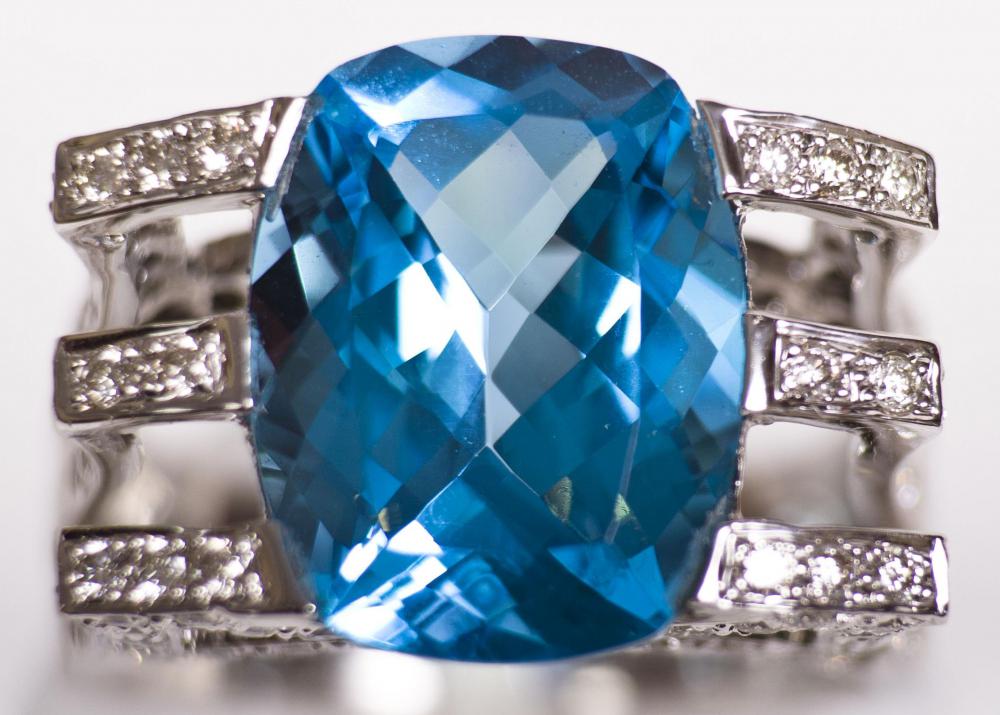At PracticalAdultInsights, we're committed to delivering accurate, trustworthy information. Our expert-authored content is rigorously fact-checked and sourced from credible authorities. Discover how we uphold the highest standards in providing you with reliable knowledge.
What does a Gemologist do?
Gemology is a branch of science that deals with the study of gemstones. The certified professionals who work in this field are called gemologists. Their duties usually involve identifying, grading, and appraising gemstones.
In some cases, a gemologist can tell what gemstone is before him by looking at it, but this may not always be possible. Two different gemstones such as blue topaz and aquamarine may look nearly identical. This means that gemologists are often required to perform a series of tests to determine the true identity of a gemstone. Usually one test is only enough to provide indicators but insufficient for complete identification.

Once gemstones are identified, they may also be analyzed so that they can be graded. A grading report typically accesses the quality of a gemstone’s features such as color, clarity, and cutting properties. There are various grading systems and the results given by one gemologist can vary from those given by another.
Appraising is another task that some gemologists perform. This generally involves assessing a cut and polished gemstone. The gemologist who appraises a gemstone is most likely concerned with determining whether it is natural or synthetic and how much it is worth. Some appraisers work independently. Others may work for auction houses and jewelry stores.
Retail jewelry stores tend to be a major employer of gemologists. This is where many professionals get the experience they need to move on to other gemology careers. In the retail setting, a gemologist may serve as a sales person or buyer. He may also serve as an adviser to jewelry designers. People who design and make jewelry may not have sufficient gemological knowledge to know which gemstones can be used for which purposes.
A gemologist may also find work at a museum. In this capacity, he may evaluate and access donations or gemstones that the museum wishes to acquire. He is likely to provide information that will help the facility decide which purchases are wise and to appraise collections for insurance purposes. He may also be responsible for providing information displayed on the placards for gemstones on exhibit.
There are many individual gemology courses that people can take. Upon completing a course, a person is often granted a certificate that proves he completed that course. It is important to note this does not make a person a certified gemologist by industry standards. A true gemologist will generally have a diploma he earned by completing a gemological curriculum outlined by a recognized institution.
AS FEATURED ON:
AS FEATURED ON:











Discussion Comments
I love both geology and gemology. I was wondering what kind of job I could get as a gemologist other than working at a jewelry store or museum. I live in Canada so would I be doing any work out west with the oil industry as well as the other industries out there? I'm trying to decide if I should be a geologist or gemologist so any information on either one would be a big help!
I want to do gemology because I don't really know what interests me. I want to become a film director but I don't have any connection to the film industry and I am not allowed to stay out of my house apart from my school hours. My daddy has said a straight no to my dream. So I want to do gemology and become a jewelry designer.
@istria- The gem industry can be very volatile, but there is the allure of shiny things that keep people in. The best money for gemologists is for those who know how to sell. A good jewelry sales person can make a comfortable salary while they gain experience, allowing them to work to the point of becoming a wholesale buyer or independent appraiser.
I am sure you have read that most gemologists are self-employed. This is because the experienced gemologists with gemology diplomas are independent buyers and appraisers. These gemologists spend a lot of time traveling the world to find the best gems. They make their living by networking and learning everything they can about the industry.
@Glasshouse- The bureau of labor and statistics groups gemologists in the same employment category as jewelers and stone cutters, so there I could not find much reliable data on only gemologists. According to the bureau of labor and statistics, the job opportunities for these professions is growing slower than normal, somewhere around five percent per year. The more training one has, the less competitive the job market.
Your assumption that the industry sheds jobs during an economic downturn is correct. The jewelry industry does not sell necessities so the industry can be cyclical. The ups and downs in the cycle can also be hard to predict and can last a while.
If you were planning on pursuing a degree in gemology, it would be wise to major or minor in a related field. The wages for jewelers and gemologists can be lower than most other physical scientist jobs, so you may need to broaden your education to ensure that your degree is a solid investment.
Are there any other professions for a gemologist besides working for jewelry stores and museums? I can't imagine the industry having very good job security if the biggest employment opportunity is the retail jewelry segment, especially considering the rise of online wholesale jewelers.
Do gemologists train as geologists, focusing on gemology? This seems like it would offer better job security and advancement opportunities than being only a gemologist. It is hard to imagine extensive opportunities of advancement for retail gemologists.
Post your comments